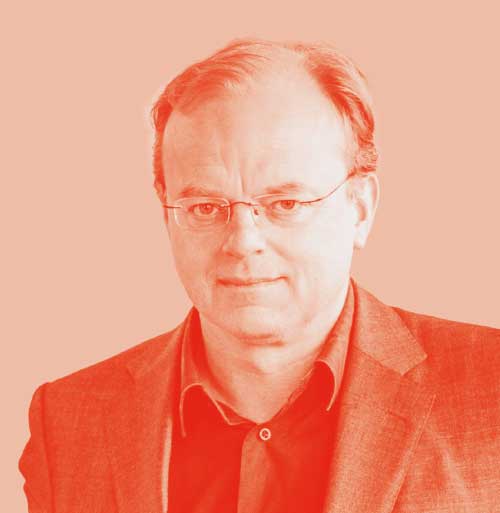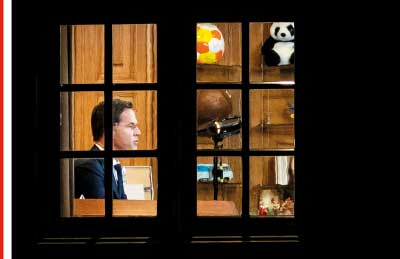Paul Jansen
Editor-in-chief De Telegraaf

De Telegraaf is an institution in the Dutch media landscape. It’s a newspaper that leads the conversation and has a clear opinion. De Telegraaf is for people with a clear opinion who dare to take a stand.
www.telegraaf.nl
Founded
1893
Daily readership print
1.016.700
Daily readership online
1.753.000
Number of subscribers
(print + digital) 415.268
Podcasts
Afhameren, Het land van Kick-off, Kwestie van centen, Telegraaf Formule 1, Uncle Joe: een blik op de VS, De Cultuur en Media & In gesprek met Paul Jansen
Journalists employed
116
Even when there is overwhelming support for the government, journalists have to point out where things are going wrong. Readers of De Telegraaf sometimes found that difficult. But the role of watchdog is more necessary now than ever.

The best speech of his life. That was the reaction after the historic first TV address that prime minister Mark Rutte gave about the coronavirus crisis in the spring of 2020. Millions were glued to their television, and there was huge support for government policy. Rutte is a master when it comes to communication.
So the crisis communication during the pandemic was good, but what about the crisis management? De Telegraaf was one of the first news outlets to point out the weak spots last year. The National Institute for Public Health and the Environment had issued conflicting advice, the government measures to limit the virus were faltering, there was a possible lack of intensive care beds and, above all, during the first wave there was a worrying shortage of tests and protective equipment such as face masks.
A Telegraaf report revealed how the government had forgotten care homes in its approach to the pandemic. The virus struck these homes mercilessly. It was a painfully good story. But not all readers appreciated the hard facts. The sentiment, at least in the first months, was that the government was doing its best and deserved support. De Telegraaf was accused of fearmongering.
Even among editors, there was a call to limit criticism. The word “alarmist” was used. I am still baffled by this paternalistic attitude. Of course, the media have a responsibility. But it is precisely when a government takes far-reaching measures that limit citizens’ freedom that journalists must fulfil their role as watchdog. That can mean going against the prevailing sentiment, even among our own readers.
Readers remain deeply divided over the coronavirus policy. An unprecedented number support all the actions to suppress the virus. Others consider the approach exaggerated. This group points to the immeasurable social and economic damage being done. Both groups point to the newspaper. Because in times of rising emotions, more than ever, people want confirmation that they are right.
For me, this underlines the importance of independent journalism. Not to tell people what they want to hear, but to separate fact from fiction and opinion from news, to cut through gossip and spin. When we were the last European country to begin vaccinating, public health minister Hugo de Jonge waved away criticism by saying that other countries had only carried out a symbolic first jab. Our editorial team checked that out. His statement proved to be untrue and we reported this prominently. Shortly after, the deputy prime minister withdrew his claim.
At De Telegraaf, we will never be a paper that pleases everyone. Sometimes we are told we are sowing panic or sensationalism, at other times we are not critical enough or too fearful of authority. Both opinions are allowed. An outspoken newspaper elicits outspoken reactions. But you need to have read our articles, listened to our podcasts or watched our videos. Because what applies to judging the corona crisis also applies to judging De Telegraaf: I respect every opinion, as long as it is based on facts.